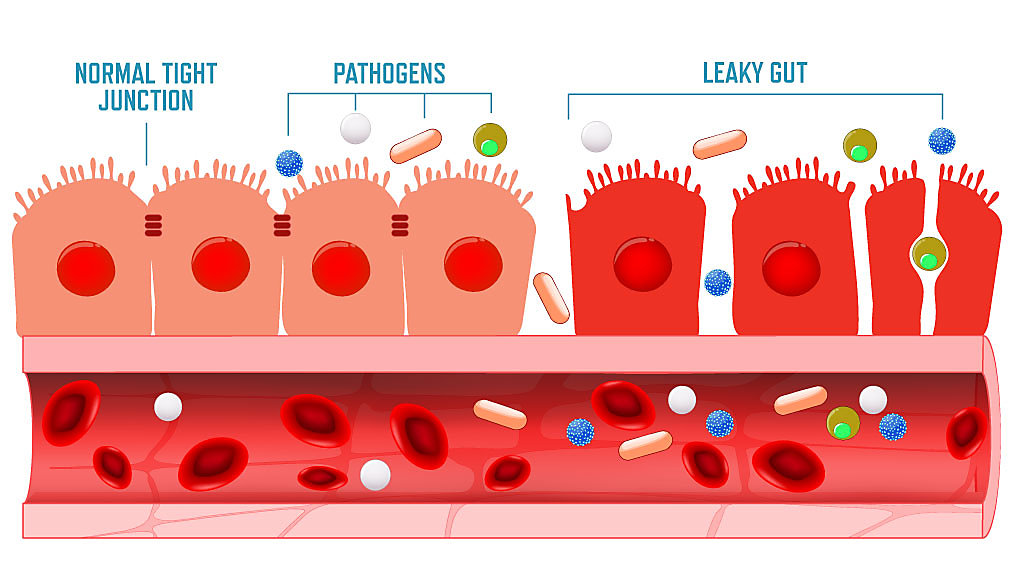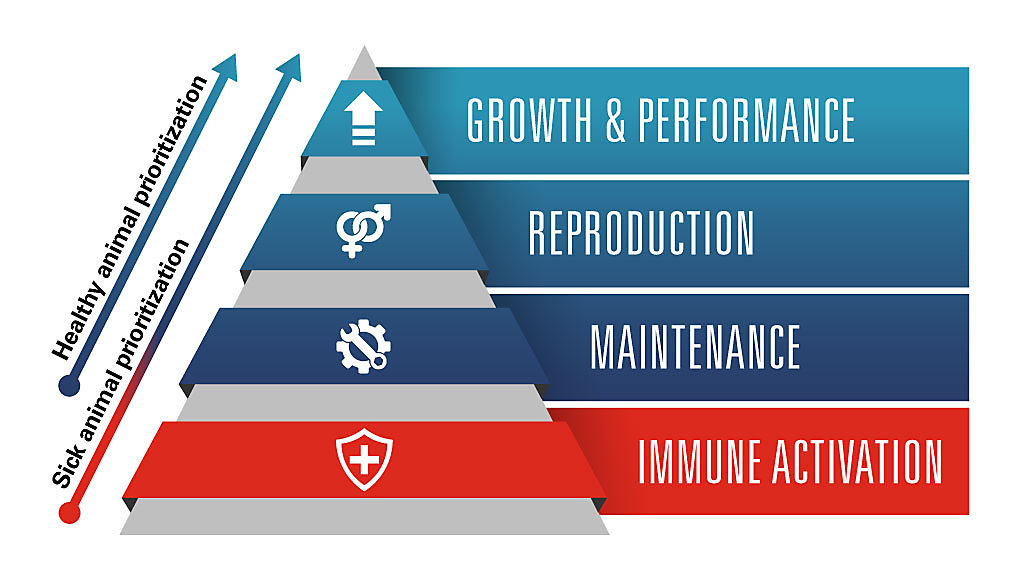Gut health has made its stamp on livestock production as the gateway to animal health. We often think the gut's primary job is to digest valuable nutrients. But an immunologist may argue that a more important job of the gastrointestinal (GI) tract is to prevent the infiltration of unwanted pathogens that can lead to illness and loss of productivity.
Not convinced? Consider these GI tract facts:
- Around 70% of the immune system resides in the gut.
- The gut is regularly exposed to trillions of microbes — that's more microbes than there are cells in your body.
- No matter the species, once the small intestine starts, the GI tract is only one cell thick.
To limit the repercussions of poor gut health, we cannot underestimate the impact of one key factor — stress. As we all know, significant stress on an animal can lead to declining health and performance. However, many everyday environmental, behavioral and physiological stressors — such as vaccinations, pathogen exposure, extreme weather, housing conditions, feed or water restrictions, etc. — can result in small, recurrent intestinal leaks. Also known as Leaky Gut Syndrome, these leaks can possibly lead to systemic problems and irreparable harm to an animal's gut.
When you put all these factors together, it's not a big leap to realize that gut health is a crucial piece of the puzzle in your herd or flock's overall health.
What is leaky gut syndrome, and how could it lead to systemic health problems?
To understand the impact of gut health, we first need to understand the anatomy of a healthy gut versus a leaky gut. As we discussed, the intestinal barrier has two key roles:
- Absorbing nutrients into the bloodstream
- Keeping harmful substances from entering the body
To perform these functions well, the intestinal lining needs to be selectively permeable — allowing the good in but keeping the bad out. The intesintal barrier consists of a single layer of epithelial cells, which are knit together by tight junctions when the gut is healthy. When the cells or the tight junctions are damaged, it opens the door for harmful pathogens, bacteria and contaminants to move through the barrier and into the bloodstream. This compromised intestinal barrier is known as Leaky Gut Syndrome (LGS).


